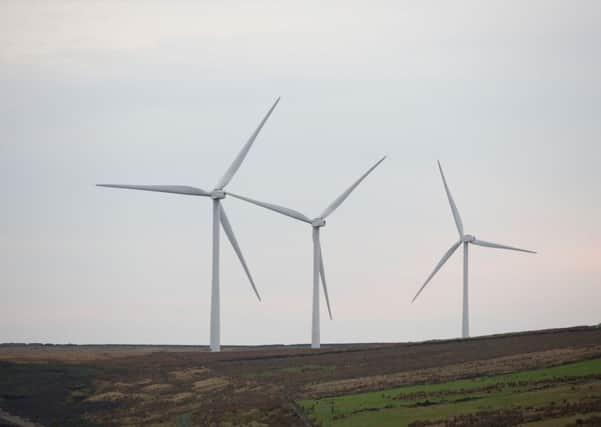Rishi Sunak: It's right to urge caution on clean energy subsidies


The ensuing political disaster ensured that ‘keeping the lights on’ soon become a byword for one of the most fundamental responsibilities of Government.
But, with energy bills having more than doubled since 1997, it is increasingly clear that keeping the lights on is only half the job.
Advertisement
Hide AdAdvertisement
Hide AdIf our economy is going to work effectively, keeping the lights on affordably is becoming just as crucial.
Last year the average Yorkshire household spent over £1,200 on its electricity and gas bill – a very real burden on family finances.
There are two crucial steps that the Government can take to attempt to lighten the load borne by Britain’s bill-payers.
The first is simple: making sure the energy companies pass on falling oil and gas costs to customers.
Advertisement
Hide AdAdvertisement
Hide AdThankfully, following pressure from both the Prime Minister and the energy regulator Ofgem, the market is starting to edge in the right direction. E.On, the UK’s third largest energy supplier, recently announced a 5.1 per cent reduction in its standard gas price for residential customers and it was closely followed by SSE’s 5.3 per cent cut.
The Government has also introduced more competition into the energy market, forcing companies to simplify bills, making it easier to switch suppliers and encouraging new entrants to the market.
What many people don’t realise, however, is that only around 45 per cent of household energy bills are determined by the wholesale costs of energy. The remainder of your bill is made up of costs like transmitting power through the National Grid and subsidies to green energy.
So the second area where Government can make a real difference to our bills is to reduce the cost of renewable energy.
Advertisement
Hide AdAdvertisement
Hide AdOur country has a strong record on generating more clean power. Renewable energy tripled in the last Parliament and emissions are coming down rapidly. That’s good news for the environment but it comes at a cost – our energy bills subsidised green energy by £3bn last year alone.
Renewables like onshore wind turbines are often more expensive and less reliable than conventional energy sources, and this means bigger bills.
We now have a pipeline of wind projects that, by 2020, will pump out enough electricity to power 8.5 million homes and meet all our international renewables targets. The time has come to stop further wind subsidies and shift the balance back to reducing household bills.
There is an argument for temporary subsidises to a few promising technologies; acting as a bridge to help the new technology become cost competitive. But subsidies should not become permanent corporate welfare.
Advertisement
Hide AdAdvertisement
Hide AdWind power is now a mature industry. Estimates suggest that there are limited technological gains on the horizon that could significantly lower costs. The sensible thing to do now is to shift our investment to younger technologies that could one day become affordable sources of clean energy.
Fortunately, that’s exactly what the Government’s new Energy Bill, currently making its way through Parliament, is seeking to do.
If successful, the Bill will close subsidies to new onshore wind projects one year earlier than planned and, in doing so, help reduce our future energy bills by as much as £270m a year.
The Energy Bill also contains one other important provision. Many of us have experienced first-hand the impact large scale wind turbines have on Yorkshire’s beautiful countryside.
Advertisement
Hide AdAdvertisement
Hide AdThe ones built at Seamer near Stokesley which were vociferously opposed by local people, come to mind. It often felt like a remote bureaucrat was imposing wind farms on rural communities without a proper local planning process.
This Government’s proposed legislation changes the planning rules so that wind farms will never again be built in areas where they are not welcome.
From now on, the responsibility for approving all new wind projects will shift from Whitehall to local communities and those communities will have to explicitly support the development.
It’s easy to characterise reticence about green subsidies as being somehow anti-environment. But that is far too simplistic. Sensible energy policy needs to balance four competing needs: reliable sources of energy that heat our homes when we need; keeping bills low; reducing our dependence on volatile foreign countries; and protecting our environment.
Advertisement
Hide AdAdvertisement
Hide AdThe truth is that those of us who urge caution over subsidies simply believe that – when it comes to the money of our constituents – there’s no such thing as a special case. Every penny needs to be justified. If it isn’t, it should stay in the pockets of the people who earned it.